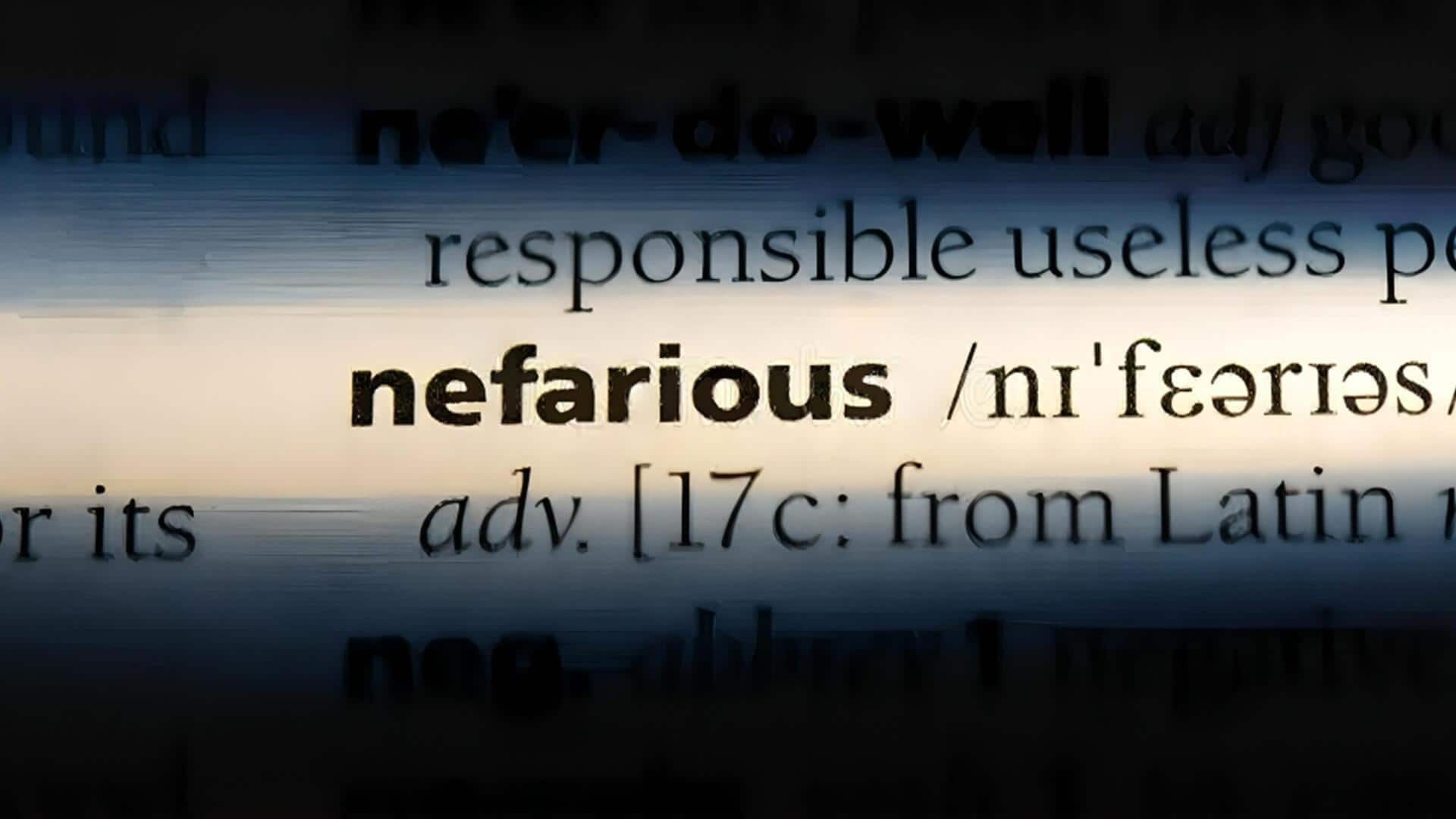
Word of the Day: Nefarious
What's the story
Ready to add a dash of drama to your vocabulary? Meet "nefarious"—a word so dark and deliciously evil, it feels like it belongs in a villain's monologue. Whether it is describing shady business deals or the plots of diabolical masterminds, nefarious packs a sinister punch. Let's unravel its wicked origins, striking usage, and why it's a favorite in storytelling!
Origin
Origin of the word
The word "nefarious" finds its roots in the Latin term "nefarius," meaning "wicked" or "impious," derived from "nefas" (crime or wrong). The prefix "ne" signifies "not," and "fas" refers to "divine law." Over centuries, the term has evolved to describe anything profoundly immoral or villainous, making it a favorite in storytelling and character descriptions.
Synonyms
Synonyms for 'nefarious'
Synonyms for "nefarious" include wicked, evil, villainous, corrupt, heinous, and immoral. While each word carries a similar connotation of wrongdoing, "nefarious" emphasizes calculated and deliberate evil, often used in contexts that highlight morally reprehensible behavior.
Usage
Sentence usage
Here's how "nefarious" can be used in sentences: "The 'nefarious' plot to overthrow the kingdom was thwarted just in time by the brave knights." "She uncovered the 'nefarious' schemes of her corrupt business rival, exposing his unethical practices." "In countless novels, the antagonist's 'nefarious' deeds are what drive the protagonist to seek justice."
Literature
Why use the word
When you want to underscore the malevolence of an act or character, "nefarious" lends a powerful and evocative tone. Its rich history and weighty implications make it perfect for dramatic storytelling, moral discussions, or even legal contexts. Using nefarious can add a layer of gravity and sophistication to your writing, captivating readers with its striking resonance.